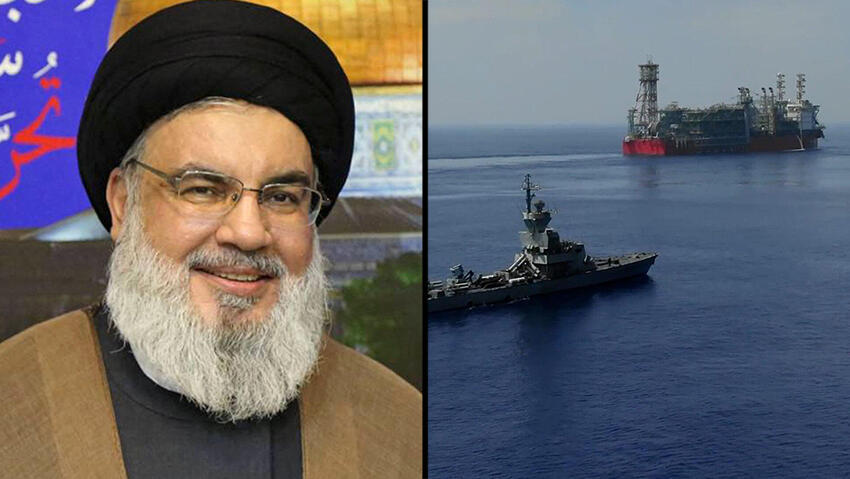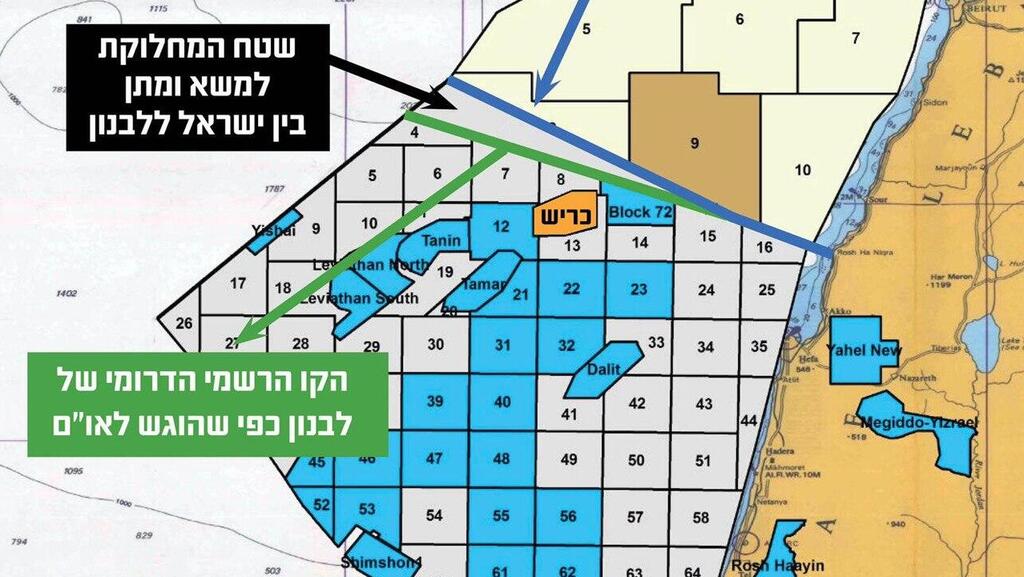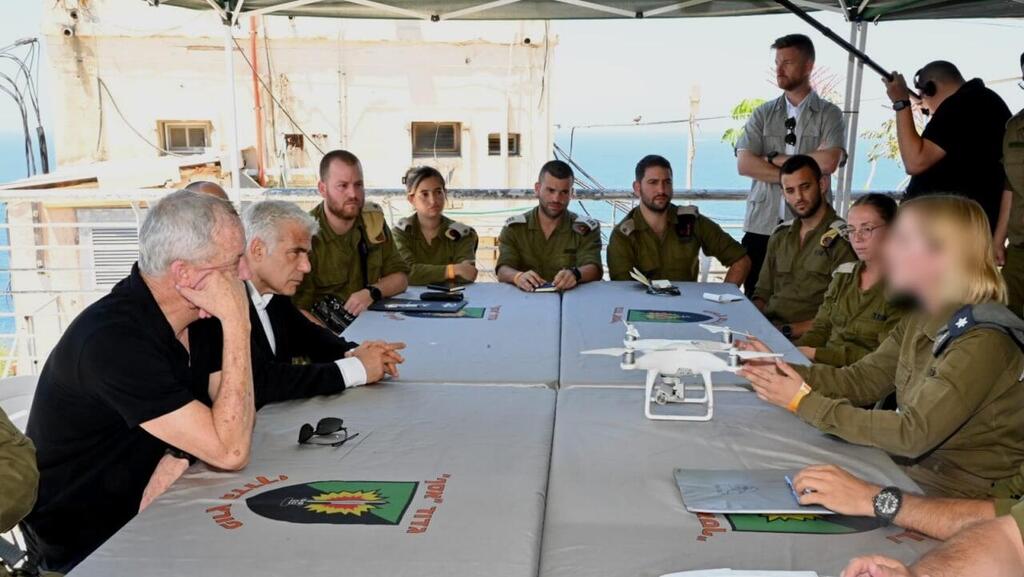Getting your Trinity Audio player ready...
Israel issued warnings to the Lebanese Hezbollah warning any attack will be answered with force, officials said on Tuesday.
The warnings were delivered using French and American diplomatic and military channels.
The Iran backed terror group was told that if it will attempt to attack the Karish gas field once again, the response from the IDF will be harsh.
According to the officials, the IDF has not raised its level of alert despite threats made by Hezbollah's leader Hassan Nasrallah, on Monday.
3 View gallery


Hezbollah's leader Hassan Nasrallah and the Karish gas field
(Photo: AFP, IDF Spokesperson's Unit)
However, in September, when the gas field will become operational, the military will reinforce the defenses around it.
Hezbollah’s secretary-general has been vocal about opposition to Israeli extraction of natural gas, which he claims is done from oil reserves within its maritime borders, specifically the Karish gas field.
"All of Israel’s gas fields are under threat from our missiles - not just Karish," Nasrallah said. "The ships that extract the gas are Israeli, even if under a Greek banner."
Meanwhile, the American mediator Amos Hochstein is scheduled to arrive in Lebanon this weekend. Israel is urging the U.S. to complete the negotiations on the maritime borders before the offshore gas field is operational but demands the Lebanese position be accepted by Hezbollah, before any agreement is signed.
3 View gallery


The blue indicates Israel's desired border, the Green line indicates the Lebanese border, and the black arrow points to the controversial area
(Photo: Energy Ministry)
Israel said an agreement is in Lebanon's best interest and could prevent further deteriorate the crisis.
Hochstein will propose a compromise in which each party will drop half of what its demands, but the Karish offshore gas field will remain in Israeli waters.
The area in dispute between Israel and Lebanon is relatively small, and it is some 860 square kilometers (322 square miles).
For Israel, the disputed territory is less than 2% of its economic water, and for the Lebanese about 3%. In 2012, Israel signaled that it was ready to compromise, and divide the region in a ratio of 42:58. However, Beirut did not show any desire to accept the offer, thus no real progress has been made.
American mediated talks have been halted and restored periodically 2000.
3 View gallery


Prime Minister Yair Lapid and Defense Minister Benny Gantz during their tour to the Israeli-Lebanese border
(Photo: GPO)
Last week, Lapid and Gantz toured the Israel-Lebanon border with senior IDF commanders and security officials just a day after a Hezbollah drone was shot down after it entered Israeli territory.
"Hezbollah's actions are a threat to Lebanon," Lapid said at the border. "We are not interested in an escalation of violence, but cannot accept Hezbollah's actions, that can ignite the entire region at a time when Lebanon can begin to develop its energy resources," he said, adding that Israel is prepared for any eventuality.
"Israel will continue to act against any Iranian terror proxy," the prime minister said adding that the government will cooperate with other Mideast nations to prevent Iran's efforts to destabilize the region.

